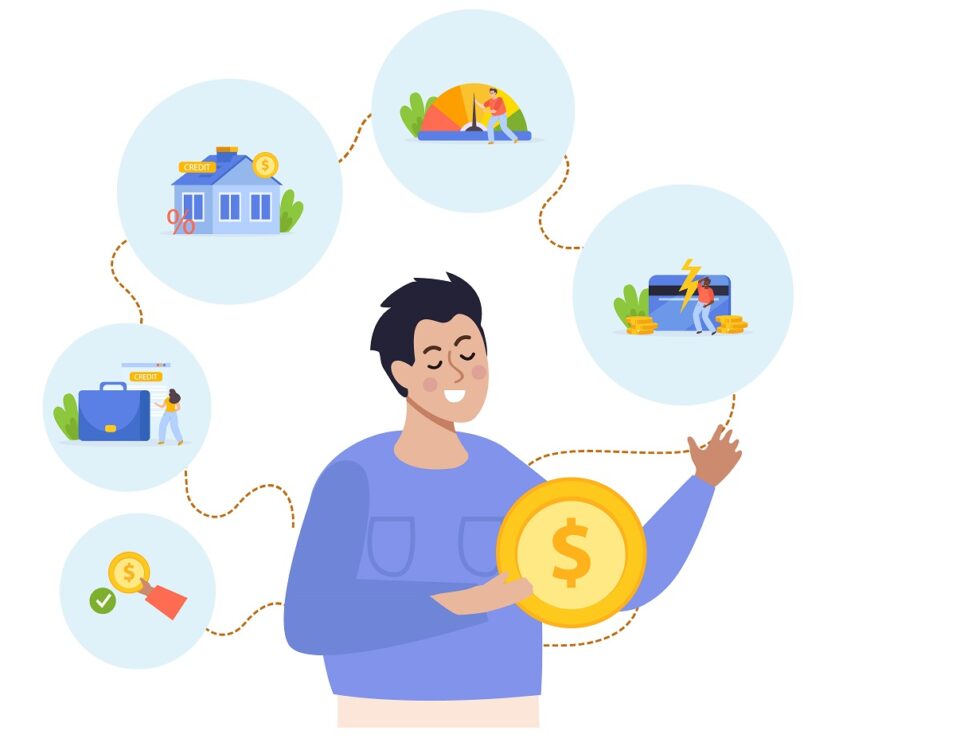- Credit Restoration Experts Nationwide

Your Kids & Money – Part One: Where To Start
July 7, 2017
Red Flag Rules of Identity Theft, Part One
July 10, 2017Your Kids & Credit – Part Two: Where to Start

It’s The Little Things. When kids get into the first grade, they are introduced to coins. They are taught their amounts, how to count coins, and what combinations of coins equal a dollar. Addition and subtraction are also studied, and the beginnings of multiplication and division are explored. But learning these things doesn’t actually help them UNDERSTAND money, and its uses. You can help. By giving them “play money”, and talking to them each time you take them to the grocery or other store about how to decide which items they want and how much money they have to spend on those items, sets the pace. Just like in every-day life for us grownups, they will have to put things back and make good decisions. Be prepared for some tears and upsets, but it is all done in the spirit of learning. Encourage the kids to use their play money at home playing “store” as well.
Allowances. A weekly allowance, especially for doing chores, is a great way to get kids into the spirit of budgeting and saving. An allowance of $5.00 per week, as an example, for doing a series of chores to help out around the house provides a rich medium for kids to learn that there is “no free lunch” in life. No matter what “chores” you give them to do, it is important to keep a chart of their progress, and give out “stars” for completing tasks. Have a savings “piggy bank” of any type where kids need to deposit their allowance. It is important that they cannot retrieve it at will, so they get into the habit of socking it away for the future. Be sure to give them the allowance in small denominations so they have to count it out to be sure of how much they have. Keep a chart with them of their savings, just like a passbook at the bank, so they can keep track of their funds. Saving up for a big purchase can be an exciting lesson.
Needs Versus Wants. Kids, like many adults, want everything they see. All you have to do to confirm this is to spend an hour watching TV with them. Almost every commercial aimed at kids causes them to say “I want that”. It is the same in life. But we can’t always afford what we want. Hopefully, we can afford our “needs”. Teaching kids about the necessities is a hard lesson for them…remember, they have been given everything up to this point with no consequences, so this is a very hard thing to grasp. Needs include: water, food, shelter, clothing. Kids will think that the fifth need is “toys”. But you can explain that one! School supplies, lunch money, participation in after-school sports, ballet lessons…these are all needs that can be met after the basic needs are met. Consider “matching” what they save in some way, such as they save $20, and you give them $5 to add to it. In this way, a child may save $300 in a year.
Teenagers And Money. Today, teenagers want everything. A cell phone, an IPad, an IPod, GameBoy, WII, concerts, and internet games. Money is a part of that. They also want the clothes and accessories that help them feel a part of the group, and cash to spend extemporaneously when they are with their friends. Today’s harried and hectic parents just want to throw cash at their kids and move on. But this practice can lead to uncontrolled spending, and some startling bills. Giving a teenager a prepaid card is a good way to limit their expenses. Sit down with them and make a budget for a month, and let them see what kinds of things can be purchased within their budget. Are you going to give them $50 or $300 each month? What will you allow them to use the card for, versus those things that you pay extra for on their behalf (like concert tickets). Make sure that they understand that a prepaid card is an advance on their allowance, and there are chores that must be performed in order to earn those deposits. If you skip this step and do not make them accountable, there will be war at home. Of course there will always be the un-planned-for expense. Just like for us parents. But these can be minimized by sitting down with your teenager and discussing the upcoming month’s activities. At the end of the month, when the statement comes from the prepaid card, be sure to sit down with your teenager and go over the list, so he/she can learn from the experience.
If you are concerned about how to teach your kids the basics of money management, please give us a call.

